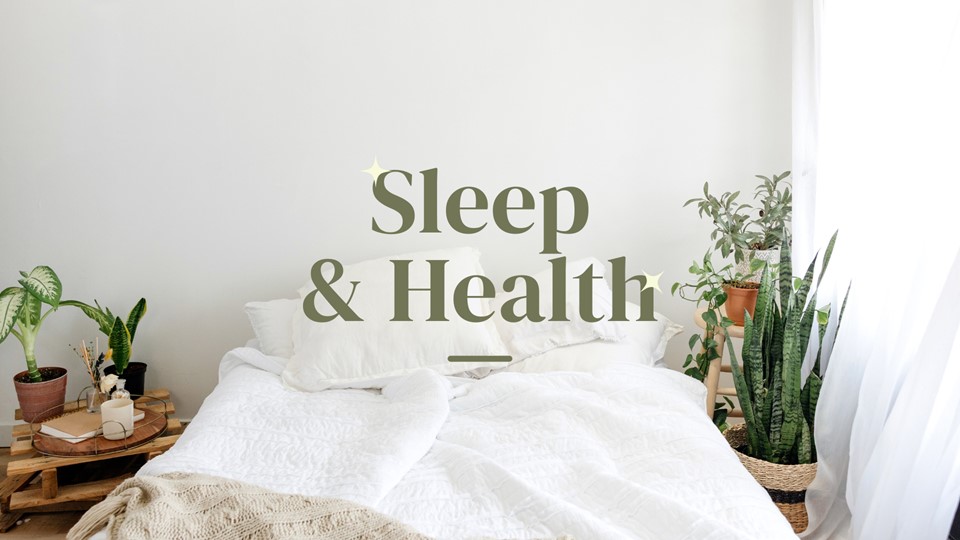Sleep for Health
 Sleep
and Health
Sleep
and Health
Watch a video presentation or download Powerpoint slides on the information that follows below.
Sleep is a critical aspect of a person’s health and significantly impacts development and the growing body and brain. Educating children about healthy sleep and encouraging children and teens to get enough sleep is a great way to give youth a foundation for a healthy and thriving life. Good sleep can mean better relationships, a brighter mood, and a better memory. The American Academy of Sleep Medicine recommends 9-12 hours of daily sleep for children aged 6–12 years and 8-10 hours of daily sleep for teenagers aged 13–18 years. Getting less sleep than the recommended minimum negatively impacts concentration, cognitive processing and emotional stability.
Sleep has an impact on many aspects of health, both short-term and long-term, such as cardiovascular health, immune function and response, and the level of risk for cancer and Alzheimer’s disease. Sleep deprivation can affect the body’s ability to fight off disease, making a person more likely to get sick, increasing the severity of symptoms, and prolonging the length of illness. Regular, quality sleep is a true shield of defense for the body.
Keep in mind that each body has individualized needs. For example, while 8 hours may be enough for one teen, another may need the full 10 hours as a minimum to function at his or her best.
 Quality
Sleep
Quality
Sleep
While focusing on the quantity of sleep is key, it is equally as important to consider the quality. In order to achieve quality sleep, it is recommended to:
- Avoid blue light exposure from devices or screens within one to two hours of sleeping. Light exposure negatively impacts melatonin production, which is a hormone that the brain produces in response to darkness and helps with the timing of the body’s circadian rhythm - wake and sleep cycles.
- Sleep in cool temperatures to promote better sleep (68° to 70° F is optimal).
- Create a bedtime routine that includes a practice of winding down for one hour before the time to be asleep to achieve 8-10 hours before waking.
 Resources
to Encourage and Promote Sleep
Resources
to Encourage and Promote Sleep
Any discussions with youth about sleep should promote its rewards. Be sure to avoid relating sleep to laziness or being unproductive. In fact, sleep promotes productivity. Share information with families to enlist them in protecting the 8-10 hours of recommended sleep time of teens. This is no small challenge given societal norms that reward heavy schoolwork, numerous after-school and social activities, and part-time jobs – all contributing to very busy days, and exhausted teens.
The rewards of sleep will be evident - disconcerting behavioral and emotional patterns in teens can often be tempered and adjusted through better sleep health. Similarly, for elementary and middle-school aged children, protecting sleep can ensure a more harmonious family life better enabling everyone to regulate emotions. Sleep and mood are intricately intertwined, as shared in this video by Harvard Sleep Medicine professors and doctors.

